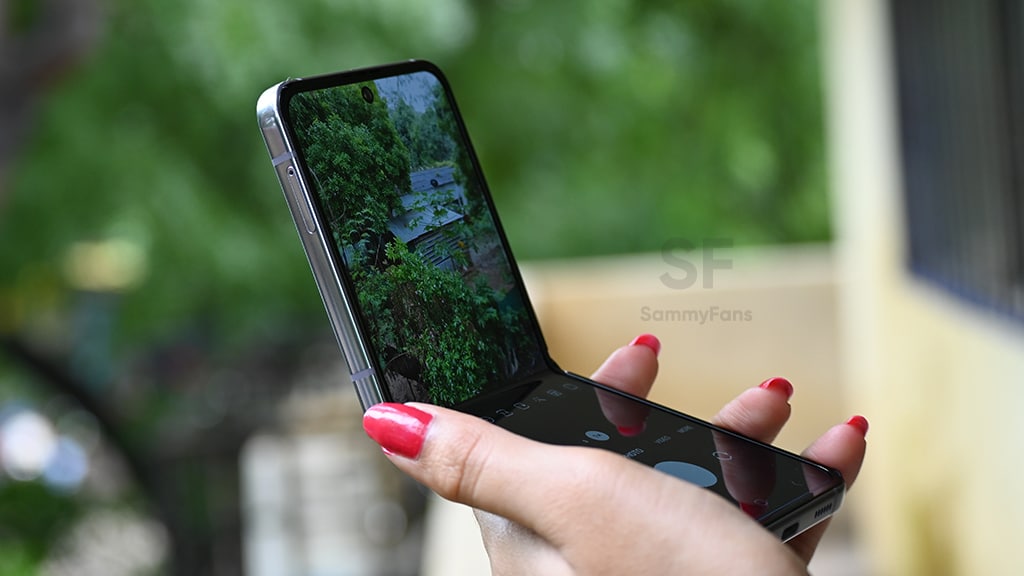News
Google has big plans for 2023, 2024, and so on…
Google Pixel 6 lineup introduced a major design overhaul, which later tweaked with the Pixel 7 series. The company plans to become the biggest threat to Samsung as Google Pixel devices are emerging as alternative options in the Android market.
In terms of Pixel phones, Google has big plans for not only 2023 but also for 2024 and 2025, as per AndroidAuthority. An anonymous trusted source revealed what major changes Google is going to make in its Pixel lineup in the coming years.
2023
At the Google I/O 2023, the company will introduce two new Pixel smartphones — codenamed “lynx” and “felix.” The former is going to be the Pixel 7a, while the latter is the possible Pixel Fold, which was pictured in renders a couple of days ago.
![]()
In late 2023, Google is expected to launch mainstream flagship devices namely the Pixel 8 (codenamed shiba) and Pixel 8 Pro (codenamed husky). Compared to the Pixel 7 lineup, the next Pixel line of smartphones is likely to share quite similarities.
2024
Depending on the profitability of Pixel 7a, Google is likely to revise the strategy of its affordable smartphone. Similar to the iPhone SEs, the company may end up launching “a” models per year. Pixel 8a, which is codenamed “akita” could be removed from the 2024 launch if Pixel 7a launch doesn’t make sense.
- Google also planned to launch the follow-up foldable device in 2024.
In Fall 2024, the US tech giant will come up with the Pixel 9 series of smartphones. In case the Pixel 8a gets canceled, we might see a third model in the Pixel 9 lineup, making a big change in the marketing strategy. The third model is rumored to pack all Pro-level features with a smaller 6.3-inch design.
2025
It’s not easy to talk about even 2024 and the source claims to have information about 2025 as well. Hence, going further, along with a recommendation to take it with a grain of salt, Google could make bold changes in its smartphone strategy in 2025, which will depend on success or failure of its 2023 and 2024 plans.
Pixel Flip in 2025
Since the foldable smartphone market is growing worldwide, Google is not leaving any space in the market. In 2025, Google could debut the Galaxy Z Flip rival, and to do so, it has an alternate strategy in place too. The first clamshell-foldable device could launch as a part of Pixel 10 lineup along with other three non-foldable Pixel 10 models.

However, if Google abandons the flip-style device, it would move ahead with four non-folding phones. That would be a vanilla model in small and large sizes and a pro model in small and large sizes. Once again, this would directly line up with Apple’s current strategy for iPhones.
In case the company cancels the clamshell Pixel phone, the mainstream Pixel lineup might have four non-foldable smartphones including two standard models with different screen sizes and two Pro models with different screen sizes, the same as Apple’s current iPhone lineup.
The roadmap sounds quite promising while everything depends on success and response in the market. Google is making better Android devices than Chinese vendors, but it’s far behind from Samsung. Since competition benefits consumers, we welcome Google’s arrival!
News
Here’s why Google Messages replaced Samsung Messages on Galaxy devices

Samsung’s latest foldable phones come with Google Messages by default. The company has now revealed the reason behind this move on Galaxy devices. Samsung says Google Messages replaced Messages to foster RCS adoption.
According to AndroidAuthority, a source explained Samsung’s decision to switch to Google Messages as the default messaging app. The recently released Galaxy Z Flip 6 and Z Fold 6 come with Google Messages with RCS enabled by default.
Looks like promoting Google Messages on Galaxy devices will boost RCS adoption. Samsung Messages isn’t already installed on newer phones. However, one’s stopping you from getting it on your Galaxy from the Galaxy Store.
While many apps support the RCS feature, Google Messages offer the best user experience. Making it a default messaging app is an effort to boost the adoption of RCS tech. Apple is also preparing to bring RCS chat functionality to iMessage for iPhones.
What Samsung source said:
- Even if messaging apps follow the RCS standard, the availability may be limited depending on which app the other party uses. That’s why we decided to make Google Messages the common messaging platform, allowing Galaxy users to communicate more freely. This also enables a messaging app to respond to changes of the RCS standard more quickly and efficiently.
Previously, Samsung devices launched in the US came with two messaging apps. This time, the company has removed the Samsung Messages. During the first setup, users are notified that Google Messages is the default messaging application.
News
Samsung SmartThings gets ISO 27001 certified

Samsung SmartThings gained the international standard ISO/IEC 27001:2022 certification. The company has officially announced this major development in its global connected living platform.
SmartThings received ISO/IEC 27001:2022 certification for information security management systems. Certification reiterates that the SmartThings Cloud operates per international standards.
To be certified, a company has to meet the standard across a total of 123 detailed items, including policies for information security, access control for information assets, and incident response.
SmartThings receiving the ISO 27001 certification is the result of our sustained focus on the protection of information in a hyper-connected world with exponentially increasing intelligence.
Seungbum Choi, Executive Vice President and Head of Device Platform Center at Samsung Electronics said “this is just another step in our drive to fortify the platform’s security. We will continue to find new ways to ensure that SmartThings’ personalized services are provided even more safely.”

BSI Prez says that they have recognized that the operation capability and security level of Samsung SmartThings is excellent. It will further boost trust in the SmartThings platform and strengthen business competitiveness.
ISO 27001 is the leading global standard for ISMSs and was established by the International Organization for Standardization. It provides companies with guidance to manage the risks to information assets systematically and achieve information protection goals.
News
Dr.diary fuels Samsung Health with glycated hemoglobin algorithm
Samsung Health app integrated the Dr.diary (Doctor Diary) glycated hemoglobin feature. The blood sugar management platform announced the launch of its glycated hemoglobin estimation functionality on Samsung’s Health application.
According to ETNews, Dr.diary announced the integration of a glycated hemoglobin level feature in Samsung Health. Galaxy users will now be able to check the estimated glycated hemoglobin level provided by Doctor Diary.
To activate the feature, Health app users will have to permit certain conditions of data in the Blood Sugar service. It is worth noting that glycated hemoglobin is a key figure for diabetes diagnosis, which users will find worth using in the Health app.
Established in 2017, Dr.diary is a blood sugar management platform. It analyzes and predicts the changes in glycated hemoglobin using its own algorithm. Earlier this year, the firm secured a patent for “glycated hemoglobin estimation based on blood sugar data table.”
Song Je-yoon, CEO of Doctor Diary, said, “With our predicted glycated hemoglobin level prediction algorithm being installed in Samsung Health, more people will be able to recognize their glycated hemoglobin level and manage their health more efficiently.”

Glycated hemoglobin (HbA1c) is a standardized numerical value of the percentage of hemoglobin, such as hemoglobin, which has been glycated by glucose. Glycated hemoglobin reflects the average blood sugar level over the past 2-3 months.
Samsung Health (with Wear OS Galaxy Watch) users can conveniently check their estimated glycated hemoglobin level within the app and use this information to manage their blood sugar levels through diet and exercise.












